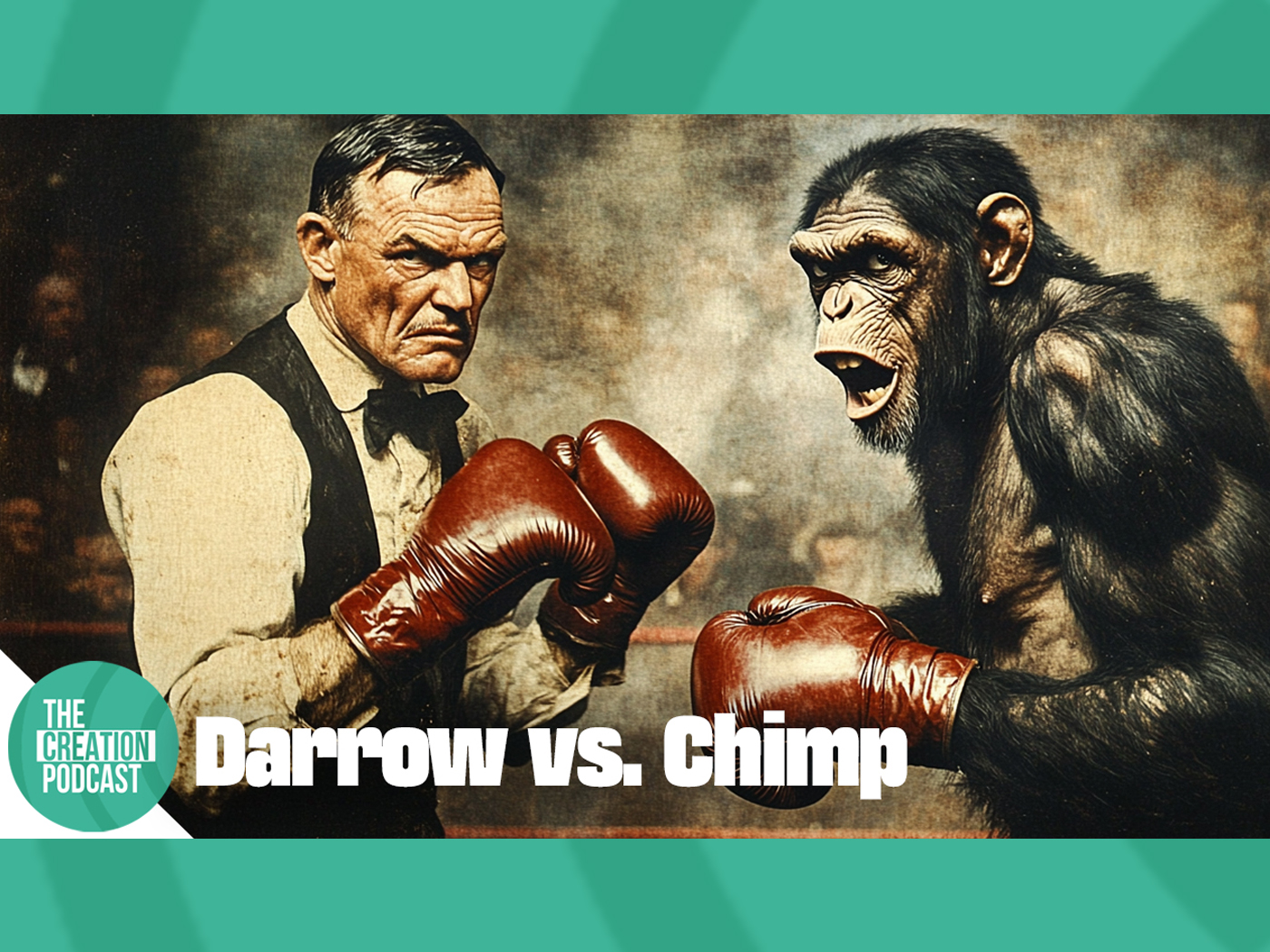One of the major missions in ICR’s current research emphasis is to scientifically challenge the evolutionary tree of life as a valid biological paradigm.1 A common manifestation of this evolutionary dogma is the claim that humans are 95 to 99 percent genetically identical to chimpanzees.2 In evaluating this claim, the ICR research team has initiated new research3, 4 and is deeply involved in the review of pertinent scientific literature.5
Two research questions raised by the DNA similarity claim are as follows: 1) Is this value accurate? 2) If accurate, what is its biological meaning?
Evolutionists often state the 95 to 99 percent figure as a true statistic, insisting that the only rational explanation for the DNA similarity is common ancestry. They reason that if a common ancestor was shared by chimps and humans in the recent evolutionary past, the two genomes would have had very little time to deviate from one another.
Several rebuttals to this claim by creation scientists have previously been published in this magazine.6, 7
To date, at least one major criticism still holds true, pending new research reports: The physical arrangement of chimp DNA sequence is largely based on the human genomic framework, except for a recent study on the Y chromosome, which was found to be remarkably different from human.7 Once similar data are obtained for other chromosomes, it is unclear how this will affect the 95 to 99 percent figure. Hence, the high DNA similarity claim is actually somewhat premature.
Given the gross similarities between anatomy and physiology, it is not surprising to creation researchers that humans and chimps exhibit similarity in DNA sequence. However, even if the 95 to 99 percent figure is accurate, there are other biological parameters that present a challenge to evolutionists. Despite the crude similarity of anatomical features between humans and chimps, there remain large behavioral and biological differences, as highlighted, for instance, by non-Christian author Jeremy Taylor in his recent book Not a Chimp.8
Given the reality of the obvious biological dissimilarities, the dogma of high DNA similarity may trap the evolutionist in his own paradigm. If it is true that humans are 95 to 99 percent identical to chimps at the genetic level, the evolutionist has only 1 to 5 percent of a genomic difference to work with. Would this be enough to explain the tremendous biological differences between the species? Given the profoundness of the biological differences, the notion of 95 to 99 percent genetic similarity leaves the evolutionary scientists precious little DNA sequence with which to work to explain these differences.
An evolutionist might respond to these rebuttals with a persuasive-sounding analogy: “We know how closely two humans are related because we can do DNA comparisons between them. Aren’t human-chimp genetic comparisons simply a logical extension of a process everyone would accept as valid and factual?” Read more about the rebuttal to this claim next month.
References
- Jeanson, N. 2010. New Frontiers in Animal Classification. Acts & Facts. 39 (5): 6.
- Britten, R. J. 2002. Divergence between samples of chim-panzee and human DNA sequences is 5%, counting indels. Proceedings of the National Academy of Science. 99 (21): 13633-13635.
- Tomkins, J. 2011. New Human-Chimp Chromosome 2 Data Challenge Common Ancestry Claims. Acts & Facts. 40 (5): 6.
- Tomkins, J. 2011. New Research Undermines Key Argument for Human Evolution. Acts & Facts. 40 (6): 6.
- Jeanson, N. 2010. Literature Review: Simplifying the Research Process. Acts & Facts. 39 (11): 6.
- Tomkins, J. 2009. Human-Chimp Similarities: Common Ancestry or Flawed Research? Acts & Facts. 38 (6): 12.
- Tomkins, J. and B. Thomas. 2010. New Chromosome Research Undermines Human-Chimp Similarity Claims. Acts & Facts. 39 (4): 4-5.
- Taylor, J. 2009. Not a Chimp. New York: Oxford University Press.
* Dr. Jeanson and Dr. Tomkins are Research Associates at the Institute for Creation Research.
Cite this article: Jeanson, N. and J. Tomkins. 2011. Human-Chimp Genetic Similarity: Is the Evolutionary Dogma Valid? Acts & Facts. 40 (7): 6.














